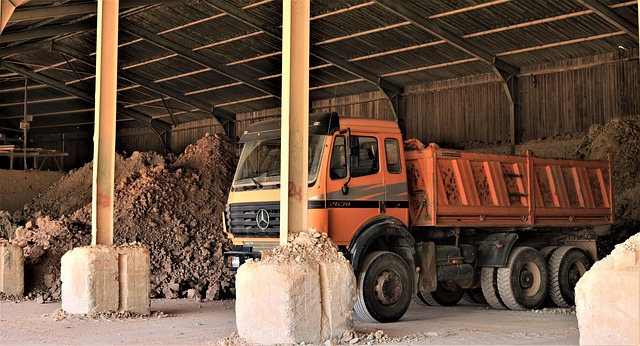Unveiling a truck's accident history is crucial for safe and efficient fleet management. Reviewing past collisions helps identify recurring issues like brake or engine problems, guiding maintenance and route planning. Understanding accidents aids in data-driven decisions about driver training and safety protocols. Recalls are critical indicators of potential hazards, underscoring the need for thorough inspections to prevent serious accidents. Informed decision-making based on vehicle history enhances overall fleet safety, reduces breakdowns, improves efficiency, and contributes to safer roads.
Unveiling the Secrets: Why Commercial Truck Accident History Matters
In the demanding world of commercial trucking, where safety is paramount, understanding a vehicle’s past is not just beneficial—it’s critical. A thorough investigation of a truck’s accident history offers a glimpse into its health and performance. Recent events, such as the General Motors recall, underscore the need for rigorous checks. This article delves into the significance of examining past accidents, revealing how fleet managers can uncover potential risks, ensure vehicle reliability, and ultimately protect both their operations and drivers on the road.
- Unveiling Truck Accident History: A Crucial Step
- Wear and Tear: Understanding Past Incidents
- Recalls and Their Impact on Safety
- General Motors' Case Study: A Warning Sign
- Informed Decision-Making for Fleet Managers
- Ensuring Vehicle Reliability and Safety
- The Power of Comprehensive Checks
Unveiling Truck Accident History: A Crucial Step

Unveiling a truck’s accident history is a critical step in maintaining a safe and efficient fleet. Commercial trucks, given their size and usage, often bear the brunt of collisions, which can result in significant damage, injuries, or even fatalities. A thorough review of this history allows fleet managers to gain valuable insights into potential hazards associated with specific vehicles.
By examining past accidents, managers can identify recurring issues, such as brake failures, engine malfunctions, or structural weaknesses, that may indicate the need for maintenance or even vehicle replacement. Moreover, understanding a truck’s accident record helps in making data-driven decisions regarding route planning, driver training, and safety protocols, ultimately contributing to a culture of safety within the trucking operation.
Wear and Tear: Understanding Past Incidents

Understanding past incidents is key when assessing wear and tear on commercial vehicles. Each accident, no matter how minor, can offer valuable insights into potential issues that may arise if left unaddressed. By reviewing accident history, fleet managers can identify recurring problems—such as brake failures, steering issues, or mechanical malfunctions—that might indicate broader systemic problems within a vehicle’s design or its maintenance regimen.
These past incidents also help to predict future maintenance needs. For example, frequent fender benders could suggest driver inattention or poorly maintained roads, while repeated engine failures might point to subpar repairs or genuine manufacturing defects. Proactive identification of these patterns allows fleet managers to schedule preemptive maintenance, thereby enhancing vehicle safety and reducing the likelihood of costly—and potentially dangerous—breakdowns on the road.
Recalls and Their Impact on Safety

Recalls are a significant indicator of potential safety hazards within the automotive industry, especially in commercial trucking. When manufacturers identify defects or issues with their vehicles, they initiate recalls to address these problems promptly. For instance, General Motors’ recent recall highlights a critical issue that could lead to severe accidents. By recalling nearly half a million vehicles, GM aims to mitigate the risk of sudden wheel lock-up, which could cause loss of control and result in collisions.
These recalls serve as a stark reminder of the potential consequences when vehicle defects are left unaddressed. They underscore the importance of thorough inspection and maintenance routines, such as accident history checks, to identify and rectify issues before they escalate. Fleet managers play a vital role in ensuring that their vehicles meet the highest safety standards by staying informed about recalls and implementing necessary measures to maintain a safe driving environment.
General Motors' Case Study: A Warning Sign

General Motors’ recent recall serves as a stark reminder of the consequences of overlooking a vehicle’s past. This massive recall, affecting hundreds of thousands of trucks and SUVs, underscores the importance of thorough accident history checks. By identifying even seemingly minor incidents, fleet managers can uncover potential systemic issues that may lead to catastrophic failures.
The case highlights how a defect, though initially appearing isolated, could have far-reaching implications. A single incident involving rear wheel lockup might not immediately suggest a widespread problem, but when coupled with other similar reports, it becomes a warning sign. This is where a meticulous review of past accidents comes into play, allowing professionals to proactively address safety concerns before they escalate and lead to serious commercial trucking accidents.
Informed Decision-Making for Fleet Managers

Informed decision-making is at the core of effective fleet management, and a crucial aspect of this is understanding the historical performance of each vehicle. Commercial truck accident history checks provide a wealth of information that goes beyond mere compliance. By examining past accidents and incidents, fleet managers gain insights into recurring issues, wear patterns, and potential safety hazards unique to specific models or manufacturers. This data-driven approach enables them to make strategic choices regarding maintenance schedules, repairs, and even replacement decisions.
For instance, identifying a pattern of brake failures in a particular truck model can trigger proactive measures such as enhancing driver training on that system, scheduling more frequent brake inspections, or considering an upgrade to the braking system for future purchases. Such informed interventions not only improve safety but also contribute to cost savings by preventing costly breakdowns and reducing downtime.
Ensuring Vehicle Reliability and Safety

Ensuring vehicle reliability and safety is a top priority for any commercial trucking operation. Commercial Truck Accident History checks serve as a critical tool in this regard, providing fleet managers with invaluable insights into a vehicle’s past performance and potential risks. By examining accident records, managers can identify recurring issues or patterns that might indicate broader mechanical problems. This proactive approach allows them to take necessary measures to address these concerns before they escalate, ultimately enhancing the overall safety of their fleets.
Moreover, understanding a truck’s history enables managers to make informed decisions regarding maintenance schedules and replacement parts. Regularly updating and servicing vehicles based on their unique accident and wear patterns can significantly reduce the likelihood of breakdowns or malfunctions. Such proactive maintenance not only extends the lifespan of the trucks but also ensures they operate at peak efficiency, contributing to better fuel economy and reduced environmental impact.
The Power of Comprehensive Checks

Comprehensive Commercial Truck Accident History checks are a powerful tool for fleet managers, offering a deep dive into a vehicle’s past performance and safety record. This process goes beyond simply identifying major accidents; it uncovers subtle signs of wear and tear that could indicate underlying mechanical issues. By analyzing historical data, managers gain valuable insights into potential problem areas, enabling them to make proactive decisions.
Such checks are especially critical given the high-stakes nature of trucking operations. As evidenced by recent recalls, even seemingly minor defects can have severe consequences. Proactive management through thorough history checks ensures that any issues are addressed before they escalate, ultimately contributing to safer roads and more reliable fleets.
In the commercial trucking industry, a vehicle’s past is a critical indicator of its future performance. By conducting thorough Commercial Truck Accident History checks, fleet managers can identify potential risks, ensure vehicle reliability, and prioritize safety. This practice, illuminated by recent recalls like General Motors’ significant defect recall, underscores the importance of staying informed to prevent crashes and maintain the highest standards of roadworthiness.



